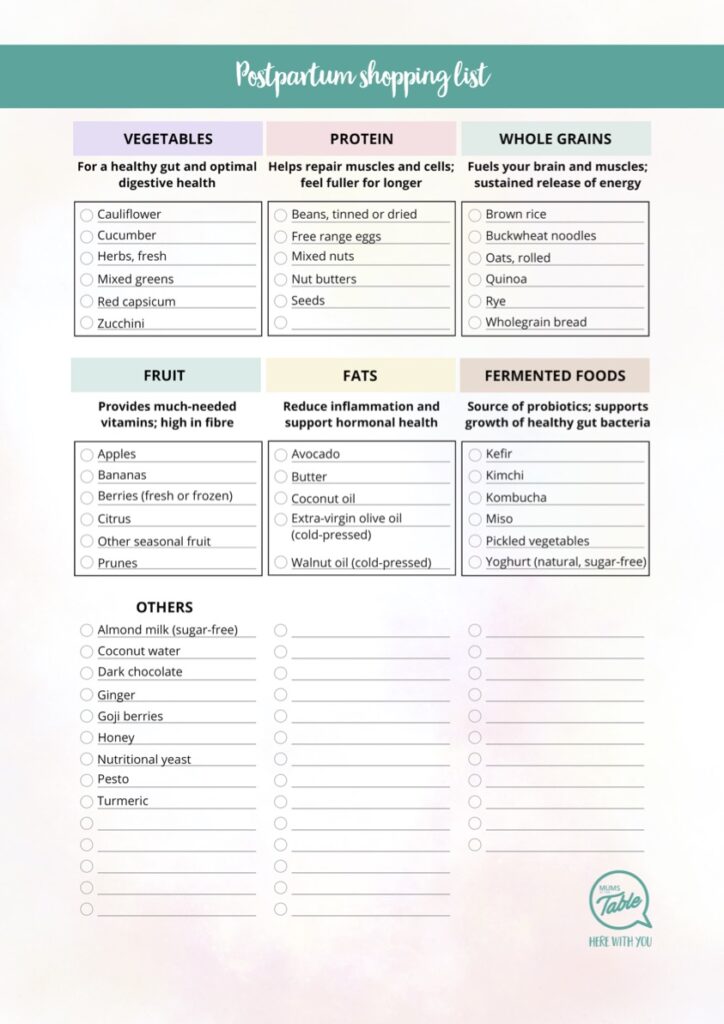Remember how when you were pregnant, you’d be holding your house keys while searching under cushions and inside pants pockets for them? Or you’d walk into the kitchen for something . . . except you have no idea what?
In 2018, pregnant women all around the world were vindicated for developing what used to be condescendingly referred to as “baby brain” when, in a study published in the Medical Journal of Australia, Deakin University revealed baby brain did in fact exist.
Their conclusion?
“General cognitive functioning, memory and executive functioning were significantly poorer in pregnant women compared to non-pregnant women, particularly during the third trimester. . . . and are consistent with recent findings of long term reductions in brain grey matter volume during pregnancy.”
Baby brain continues after giving birth
You’d be forgiven for assuming that since baby brain is a phenomenon that surfaced when you got pregnant, that it’d automatically go away once baby is born.
Until you leave your sunglasses on the roof of the car. Baby, groceries and nappy bag start going into your car. You get in and drive off, wondering just where your sunglasses are until you hear a crunching noise under your car tyres. Oh, that’s where those were.
The bad news is that our brain structure appears to become permanently altered with each pregnancy, which means without good postnatal care, baby brain may be here to stay.
The good news is, there’s hope. Read on for strategies you can take after giving birth to give you the best chance of getting your pre-pregnant brain back. We also have a free shopping list for you to plan the best postpartum meals to aid in your recovery.
What is postnatal depletion?
In 1996, Dr Oscar Serrallach graduated with a medical degree from the Auckland School of Medicine, New Zealand. Since then, he has devoted much of his medical career to helping mothers recover from what he has identified as “postnatal depletion”.
This condition results from the immense physical toll that pregnancy, birth and breastfeeding take on a woman’s body, combined with the extreme exhaustion caused by sleep deprivation and the psychological challenges of adjusting to motherhood. Women can still be suffering from postnatal depletion years after giving birth.
In his book, The Postnatal Depletion Cure, Dr Oscar explains how he began his research when he and his partner were starting their own family (they now have three children). His concern for the wellbeing of mothers is deeply personal: “I feel blessed and grateful to now have a healthy family, and through our struggles, I feel that my purpose in life is to be a leading voice in the revival of motherhood as an honoured and respected path—a genuine heroine’s journey.”
The Postnatal Depletion Cure is not a quick read, rather it is a comprehensive reference work, full of detailed information to help mothers rebuild their health and reclaim their energy.
According to Dr Oscar, the physical symptoms of postnatal depletion include:
- Fatigue
- Baby brain
- Insomnia
- Dry skin
- Thinning hair
- Sensitivity to light and sound
Emotional symptoms can include:
- Anxiety
- Decreased libido
- Guilt and shame
- A loss of confidence
- Feeling isolated, overwhelmed or powerless
Postnatal depletion includes some psychological symptoms, but it should not be confused with postnatal depression. A mother suffering from depletion may feel generally flat, but she will still be able to find some enjoyment in motherhood and in simple pleasures such as watching a sunset.
By contrast, a mother with depression will be unable to find joy in these things. Postnatal depression usually emerges within the first four weeks and can be effectively managed with a range of treatments. If you suspect that you might be suffering from postnatal depression, speak to your GP.
Health care plan to combat baby brain
When asked if there are any parenting styles a mother can adopt so as to avoid postnatal depletion, Dr Oscar says, “It is best to choose parenting styles that suit both your personality and your resources. A lot of mothers experience anxiety and are overwhelmed when they follow someone else’s parenting style or advice, going against their own instincts.
“My motto is ‘mothers need support not judgement’. I don’t see mothers who are doing a bad job but I do see mothers who feel they are doing a bad job, because they feel over-judged and under-supported.”
Dr Oscar believes there are four components to getting replenished:
1. Sleep
Deep sleep is “nature’s built-in stress-reduction mechanism”. Every mother knows what happens when we don’t get enough of it: it plays havoc with our thinking, our motor function and our emotions.
2. Purpose
Another key to health is to have a sense of purpose, “ensuring that you feel connected to your place and role in the world”. As Christians, we know that our purpose comes from the One who made us—we were created to honour God by living well in His creation and loving the people around us, beginning with our family.
3. Activity
Dr Oscar also encourages mothers to get active. He recommends gentle exercise such as walking and swimming. In his book, he even has a postnatal exercise program that you can do at home. Dr Oscar sums it up like this: “The combination of plenty of activity, correct movement and posture, and gentle exercises and stretches not only will help your postnatal body to recover its strength, but will also give you more energy, improve your sleep, kick-start your libido and make you feel so much better.”
4. Nutrition
Dr Oscar believes that the road back to health starts with replenishing your levels of vitamins and minerals (micronutrients). Depleted mothers usually need to take supplements to begin with; after that, they can get enough micronutrients from a healthy diet. You will need the cooperation of your GP to test for vitamin deficiencies and prescribe the right supplements.
There may be instances where doctors may be sceptical about the condition, but Dr Oscar believes GPs are becoming more aware of and sympathetic to the unique struggles that mothers can experience with their health.
“However, if a GP appears sceptical,” says Dr Oscar. “I don’t recommend persevering, mainly because I can imagine it requiring great patience and stamina on a mother’s part. Instead either find a more sympathetic doctor or, alternatively, a naturopath who has a deep understanding of the postnatal period.”
Once you have rebuilt your micronutrient levels, it’s time to focus on the macronutrients—your proteins, carbohydrates and fats. According to Dr Oscar, “The ideal diet for a woman recovering from depletion includes moderate to high levels of [healthy] fat, moderate levels of protein and small amounts of carbohydrates.”
Dr Oscar’s optimal energy food plan is full of fresh, unprocessed foods that will boost your health and avoiding processed carbohydrates, vegetable oils and food additives.
Relevant: How to lose the baby weight: The surprising facts about weight loss after pregnancy
Postnatal care is not just about physical health
Dr Oscar underlines the importance of sharing your feelings and asking for help. He urges mothers to practise “self-love”—to value our own health enough to attend to the four pillars of health: sleep, purpose, activity and nutrition. Dr Oscar warns against becoming a martyr who wears herself out with endless activity, never stopping to rest or enjoy the present.
It is also normal for relationships to become strained in the early days of parenthood, but good communication makes all the difference. Recovering your relationship with your partner is essential for your emotional wellbeing and Dr Oscar suggests couples should make time to talk openly about their feelings; resolving conflicts starts with reconnection.
As for sexual intimacy after the birth of a baby, Dr Oscar says, “Our closest-related species, primates, will typically have a gap of three to five years between offspring; humans will have children more closely together than this. My advice is that ideally, a mother should have recovered from the typical 700 hours of ‘sleep debt’ that can occur in the first year, and be in a better sleep pattern before she conceives again. This can sometimes take two to three years.”
Returning to work after giving birth
“During pregnancy and during the first few months postpartum, there are huge changes that occur in a woman’s brain, hormone levels and hormone receptors, creating a larger capacity for intuition and empathy. These changes can be considered an ‘upgrade’ but it takes some time to integrate this upgrade into your new life,” says Dr Oscar.
“A mother can have quite a changed worldview after the birth of a child and can feel both thankful about getting back to work, but also a degree of alienation due to her increased sensitivity and hypervigilance. I recommend taking as much time off work as possible: ideally, six weeks or more, and then transition back to work part-time, even if just for a few weeks. This can really assist with the integration of these changes.”
At the same time, we would all do well to practise some simple relaxation skills, such as focusing on our breathing, but as Dr Oscar warns, “Learning to relax is a skill like any other”.
With The Postnatal Depletion Cure, Dr Oscar has written a valuable resource for helping us to become the mothers God wants us to be—secure in our God-given purpose, caring for the body He has given us, energised to love our family and investing in our marriage. But we can’t do it alone, and just as we need communities, we should take time to be part of a community that takes the lead in offering the kind of encouragement and support that every mother needs.
What if you are vegetarian?
According to Dr Oscar, vegetarians need to pay extra attention to these micronutrients:
DHA: Typically comes from fish oil. An excellent DHA supplement for vegetarians is algae-based DHA.
Iron: Vegetarian foods that are high in iron are cooked leafy vegetables (e.g. spinach), legumes (e.g. lentils) and seeds (e.g. pumpkin seeds).
Vitamin B12: Vegetarians should be able to get enough B12 from eating fermented products, mushrooms and sea-based vegetables.
Zinc: Plant-derived zinc is harder to digest and absorb than animal-based zinc. Therefore vegetarians are more likely to be zinc deficient and require supplements. The best vegetarian sources of zinc are activated seeds and nuts.
Choline: If a mother is not eating eggs and has concentration issues, supplement this for a short while then focus on plant-based sources, especially cruciferous vegetables.
FREE PRINTABLE!

How helpful was this article?
Click on a star to rate it!
4 / 5. 1
Be the first to rate this post!
Harriet Connor
Related posts
Subscribe
Receive personalised articles from experts and wellness inspiration weekly!



